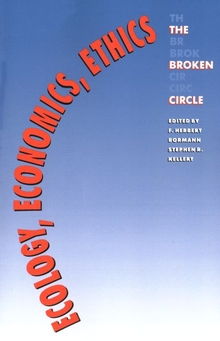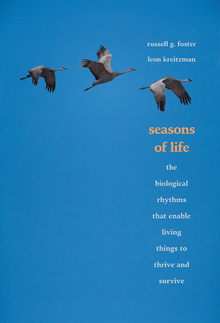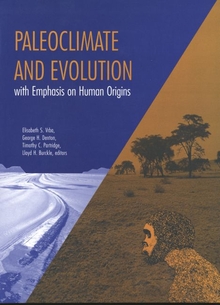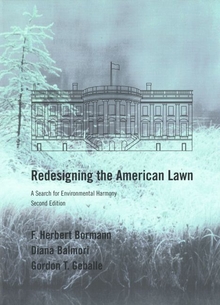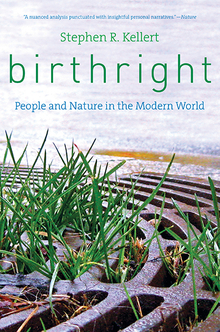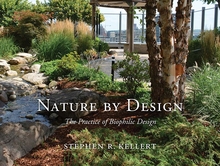Ecology, Economics, Ethics
WARNING
You are viewing an older version of the Yalebooks website. Please visit out new website with more updated information and a better user experience: https://www.yalebooks.com
The Broken Circle
Edited by F. Herbert Bormann and Stephen R. Kellert
In this book a distinguished group of environmental experts argues that in order to solve global environmental problems, we must view them in a broad interdisciplinary perspective that recognizes the relations—the interconnected circle—among ecology, economics, and ethics. Currently the circle is broken, they say, because environmental policy is decided on short-term estimations of material that take little account of the economic or moral burdens that will be borne by future generations if we deplete our resources now.
We must, assert the authors, have a better knowledge of the science underlying our environmental problems, we must understand their causes and consequences in relation to our economic and political systems, and we must recognize that an effective response will require a shift in a technologically oriented society’s ethical attitude toward the natural environment. The authors address a wide range of concerns from global atmospheric degradation and spreading toxification of the environment to loss of forests and massive species extinctions. They offer to general readers, students, and professionals practical assessments and remedies for many of these problems. They suggest, for example, mechanisms that provide economic incentives for conservation; engineering and technical adaptations to use resources more effectively and dispose of waste products; better economic accounting procedures for measuring the real environmental costs of our depletion of natural resources; and a remodeled education system that better prepares us to see each individual’s responsibility to the environment.
"This book disturbs and challenges. It is rich with accurate information about the state of the global environment. It is courageous in pointing to the hard choices we must make. It is the kind of book one expects when the very best people are brought together."—Gus Speth, World Resources Institute
"In this volume some of the best minds in the business focus their attention on key environmental problems. I recommend it highly."—Paul R. Ehrlich, Bing Professor of Population Studies, Stanford University
"It is a gripping review of the crisis of life on earth by some of the world's leading analysts. The book is one of the best contemporary treatments of the great issues and is certain to find its way into every environmental studies curriculum."—G. M. Woodwell, The Woods Hole Research Center
"As our impact reaches the point of alteration of biology, chemistry, and physics on a planetary scale, important voices are raised in thoughtful eloquence. The fundamental verity is the environmental challenge cannot be met until the broken circle is closed."—Thomas E. Lovejoy, Smithsonian Institution
"These essays point to the importance of moving from an attitude of stewardship to one of `studentship' in relation to nature. This affirmation, coming as it does from a group of resource management experts, makes this volume a stand-out, quite apart from the fine factual information it contains."—Sara Ebenreck, Earth Ethics
"The problem is how to foster economic development that does not ruin the environment. . . . Accomplishing such a task will not be easy, but it may be assisted by collections of expert essays like Bormann and Kellert's Ecology, Economics, Ethics."—Daniel J. Kevles, New York Review of Books
"[This] important book of essays questions whether economy and ecology are really irreconcilable . . . attempts to 'reconcile and integrate' the alienated perspectives of ecology and economics, and uses ethics as the cement fusing the two. Until we do so, the editors argue, the urgent problems facing us will be impossible to address effectively."—Gordy Slack, Pacific Discovery
"Well edited, with a good bibliography and lively, engaging writing, the collection is an excellent resource on environmental issues for the general public and undergraduates."—Choice
"Bormann and Kellert have compiled an impressive host of presentations . . . into readable and informative text. . . . The authors address their particular topic with verve and authority. They provide the reader with compelling concepts and analyses. Moreover, the book reads like a novel."—Eric H. Hol and B. Thomas Marden, BioScience
"This book . . . makes a convincing case that ethics ought to be a part of the education of everyone who will sooner of later advocate solutions to environmental questions."—American Forests March
"Underlying each contribution is a sense of urgency that the development of a global environmental ethic that recognizes the critical importance of natural systems for life support on planet Earth must happen soon. I hope this book will find a wide audience among students, journalists, and others who are in a position to accelerate the propagation of an environmental ethic."—Robert C. Harriss, Science Books and Films
"Thoughtfully conceived, well written and artfully produced. It will appeal to both students and practitioners of earthkeeping."—Victor B. Scheffer, Journal of Wildlife Management
"There is a wealth of information here, and some interesting ideas."—Bernard Hoose, Heythrop Journal
Publication Date: July 28, 1993

